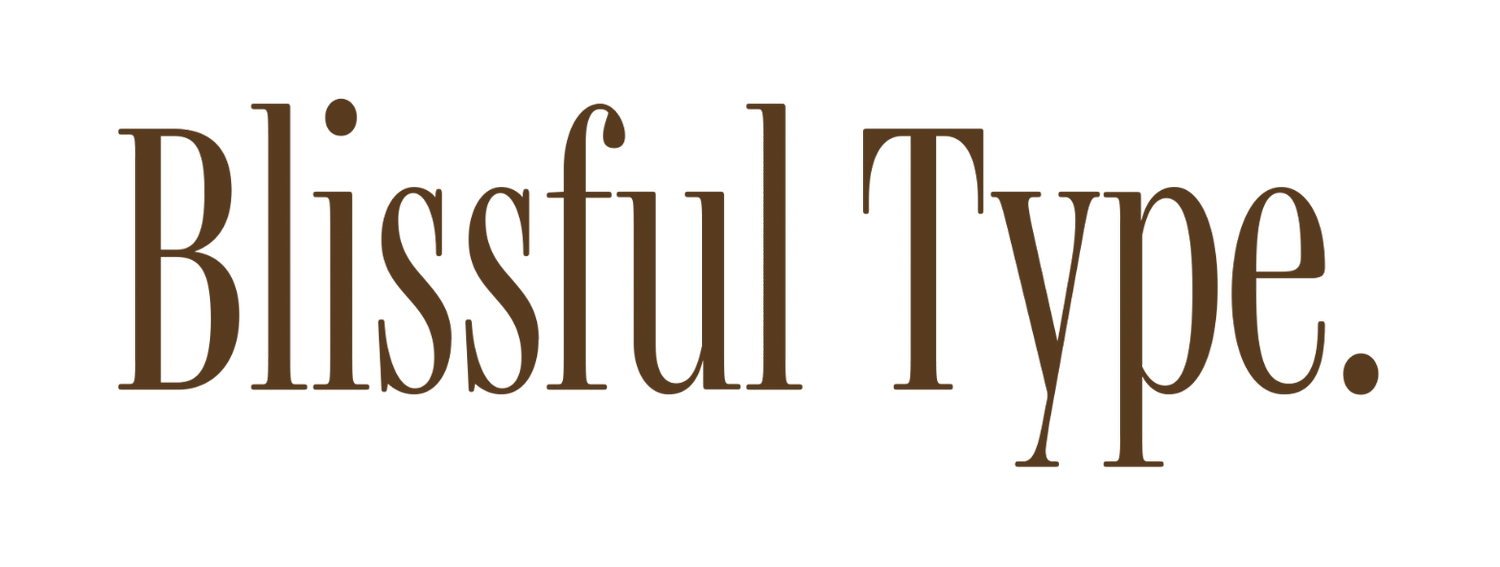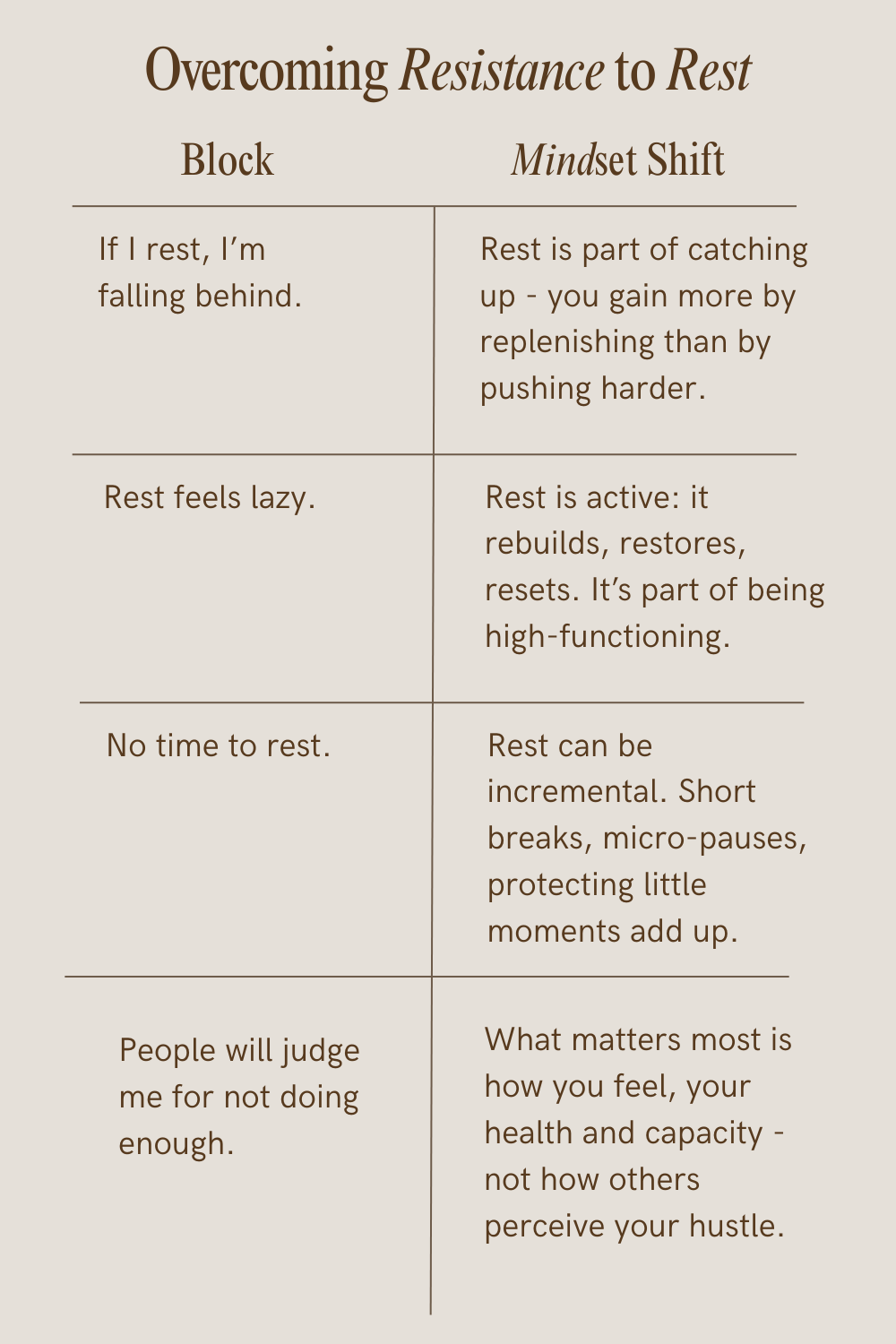Why Rest Is Essential for Productivity and Confidence
In a world that worships hustle, productivity, and constant output, the idea of doing less often feels like a rebellion. Yet, doing less - resting more - might just be the most powerful strategy to build long-term focus, creativity, and sustained confidence.
If you’ve ever felt guilty for taking a break, this post is for you: let’s unpack rest as resistance, why rest builds more, and how you can start scheduling rest into your life so that doing less actually leads to doing better.
What Does “Rest as Resistance” Mean?
“Rest as Resistance” flips the script on hustle culture. It’s about rejecting the notion that your worth is tied to your productivity and embracing rest as an essential part of the growth cycle. Rest isn’t an afterthought. It’s the soil in which your creativity, clarity, and resilience grow.
When you say “yes” to rest, you’re saying “no” to burnout, overwhelm, and the constant grind. You’re reclaiming your energy, your peace, and your ability to show up fully.
The Science + Benefits of Rest
Here’s what research, thought leaders, and well-being experts show:
Restive and restorative rest increases productivity, creativity, and mental clarity. Atlassian+2Greater Good+2
According to the Greater Good Science Center, even our brains need rest to process problems, generate insights, and strengthen decision-making. Greater Good
At work, when rest is built in (short breaks, boundaries, no late hours), people report less burnout, more job satisfaction, and better performance. Atlassian+2inl
Types of Rest
Rest isn’t one-size-fits-all. There are different types, and different rest works for different people. Some of the main types:
Physical rest: Sleep, naps, gentle movement, stretching.
Mental rest: Quiet time, stepping away from screens, allowing space for your brain to wander.
Emotional rest: Letting yourself feel and release emotions, setting boundaries around emotional labor.
Social rest: Choosing spaces and people that energise you, limiting draining interactions.
Spiritual/restorative rest: Activities that reconnect you with values, purpose, meaning (journaling, being in nature, meditation).
These are backed by many wellness/psychology sources. Rest works best when you identify which rest you are most lacking.
Why Doing Less Often Builds More
When rest is intentionally woven into life, it yields surprising benefits:
Increased Focus & Clarity - A rested mind is able to prioritise, see patterns, think more clearly. Without rest, everything feels blurry.
Better Creativity & Innovation - Rest gives space for unconscious processing. The mind often comes up with its best ideas after stepping away.
Sustainable Productivity - You can’t pour from an empty cup. Overworking leads to exhaustion, mistakes, reduced quality. Rest helps you maintain energy over longer periods.
Improved Well-Being - Less stress, better mood, stronger immune function. Rest supports mental health.
Stronger Self-Trust - When you allow yourself rest, you're telling yourself: “I am worthy even when not producing.” That builds confidence from the inside out.
How to Practice “Rest as Resistance” This Week
Here are 2 practical exercises to help you start integrating rest:
Exercise A: Rest Audit
On a blank page, draw two columns: Draining vs Restoring.
Write down everything from your week: work tasks, meetings, calls, social media, chores, even mental load.
Identify one thing in Draining you can remove, postpone, or delegate.
Identify one thing in Restoring you’ll protect - schedule it.
Reflect: notice how your energy, mood, and creativity shift.
Exercise B: Your “Permission Slip” for Rest
Write yourself a real permission slip (like a note) that says: “I give myself permission to rest by ___ this week.”
Fill in the blank (examples: turning off my phone for 30 mins after dinner, taking Sunday afternoon off, saying no to a social engagement that drains me).
Put it where you will see it: phone lock screen, journal, sticky note.
Every time you feel guilt or resistance, refer back to your permission slip to remind yourself rest is part of your strategy, not a reward.
Overcoming Resistance to Rest
Many of us struggle to rest because of mindset blocks. Here are common ones + reframes:
Putting It into Routine: Daily & Weekly Rest Habits
Daily micro-rest: 5-10 minute breaks after focused work. Stretch, walk, close your eyes.
Rest block: Block a consistent time each day as “no work / no planning” time.
Weekly reset: Pick one day or half-day to disconnect: no work emails, no social media plans.
Monthly or quarterly deep rest: Longer downtime (e.g. a retreat, staycation, time off) to recalibrate.
To build lasting confidence, creativity, and sustainable momentum, rest isn’t optional - it’s essential. Resting with purpose is one of the strongest acts of resistance in a hustle culture that pushes us to always do more. Doing less doesn’t mean achieving less. It means building more - more clarity, more energy, more peace, more impact.




